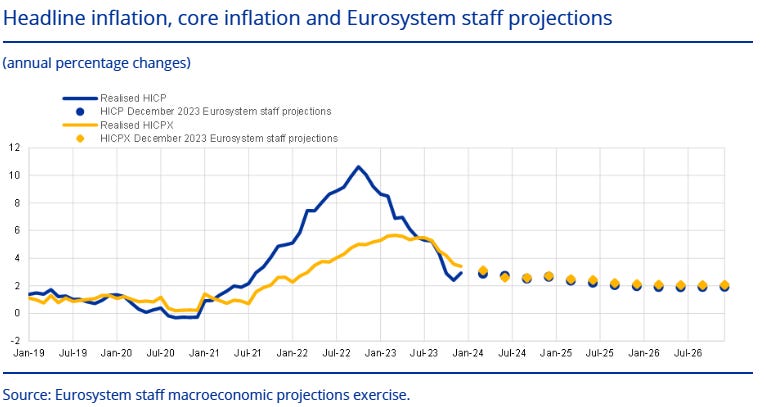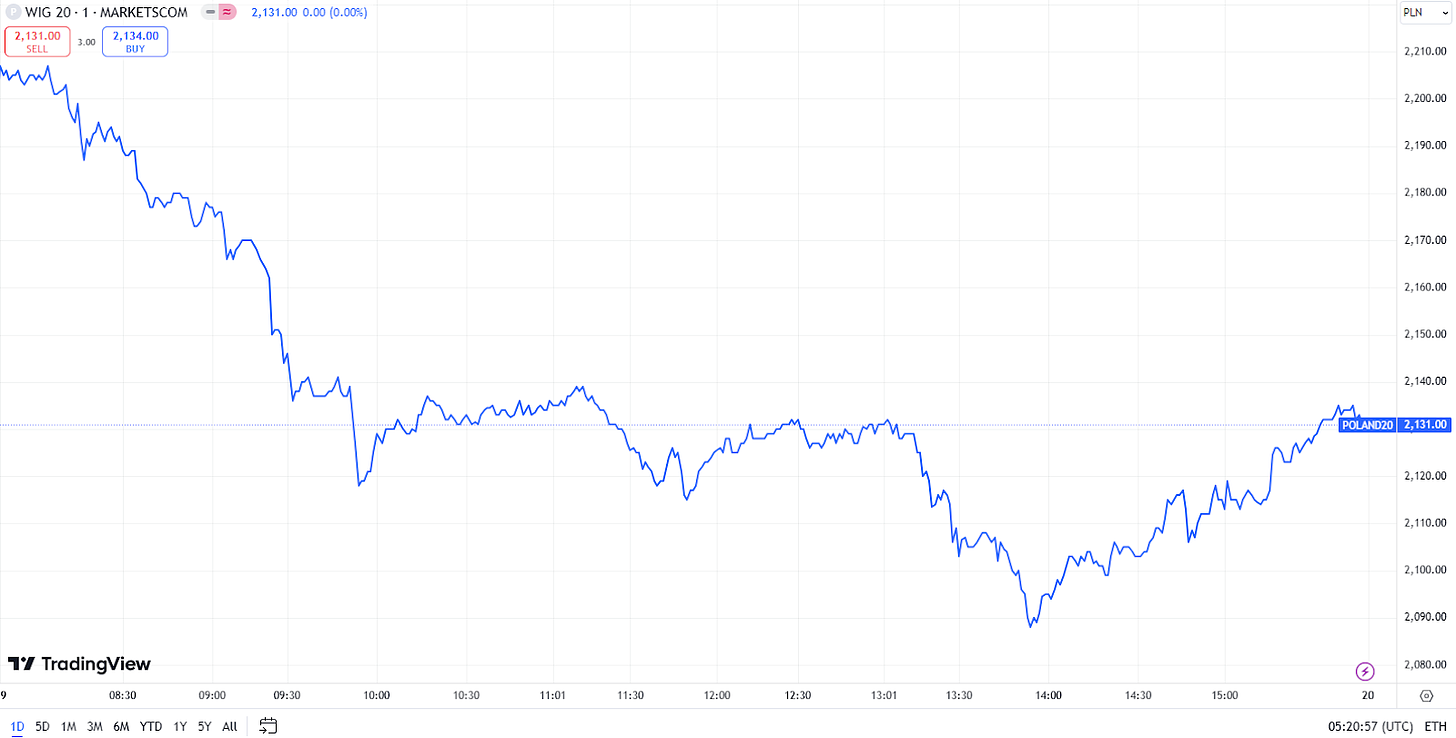European geopolitical stability may improve during the next Trump administration, despite concerns about the upcoming US president's impact on global security.
Citi analyst have forecasted Citi analysts forecasted that Brent crude, which closed at $73.49 a barrel on Wednesday, would average $60 per barrel next year driven lower by the energy policies of the incoming US administration. They also said Trump's presidency could lead to a decline in geopolitical tensions.
For European nations, lower oil prices will help spur economic growth and keep prices in check, allowing for lower interest rates and higher capital investments. After the Russian invasion of Ukraine in 2022, Europe experienced an "extraordinary surge" in inflation.

Europe has struggled to recover from the twin shocks of Covid-19 and the war in Ukraine. And there is little indication that euro area will shake off its weak growth of 0.4% in Q3 this year.
"Economic activity has been weaker than expected: we have revised down our projections twice – before the summer and in September," Luis de Guindos, Vice President of the European Central Bank, said on Monday. "The growth outlook is clouded by uncertainty about economic policies and the geopolitical landscape."
Trump May Spur European Leaders Into Action
Trump's mandate for change after winning the election could influence European leaders to alter course. Germany’s most widely read tabloid, Bild, said that the US election was “the last warning signal for our government” to address voters’ grievances.
Like their American counterparts, many European voters are frustrated with their economic prospects and political leadership. They are concerned about geopolitical instability impacting Europe with the war in Ukraine and tensions in the Middle East.
Trump's "peace through strength" policy had successfully fostered stability in Europe and the Middle East. His supporters point to the fact there were no new wars during his last administration.
Under President Joe Biden, through, Europe witnessed the Russian invasion of Ukraine and an escalation in tensions between Iran and Israel. The latest US policy shift by the outgoing president on Ukraine has also caused jitters in global markets.
European Markets Fall After US Shifts Ukraine Policy
European markets moved lower after Biden authorized the first use of the US-supplied long-range missiles by Ukraine inside Russia. The DAX Index fell, bringing its one-month decline to 1.5%. Poland's main stock index (WIG) sank more than 7%.

After Biden's decision to allow Ukraine to target sites within Russia, Vladimir Putin approved changes to Russia's nuclear doctrine. The doctrine now says an attack from a non-nuclear state, if backed by a nuclear power, will be treated as a joint assault on Russia.
In Washington, lawmakers in both parties generally supported Biden's policy change. "In a month-and-a-half, you're going to have a new president, and Russia will probably sue for peace," Rep. Rich McCormick (R-Ga.) said. "So let them defend themselves, punch Russia back in the face."
That show of support for Ukraine may reassure European politicians fretting about the new Trump administration.
Europe Concerns About Trump's Ukraine Policy ‘Unrealistic'
German Foreign Minister Annalena Baerbock has expressed concern about Trump’s unwillingness to support Ukraine. But Peter Thiel, co-founder of PayPal PYPL and Palantir Technologies PLTR, swept aside these fears.
"You probably can't simply retreat from Ukraine without it just becoming a route," he said on November 14. "I don't think President Trump wants a repeat of what happened with Biden in Afghanistan."
Thiel was referring to the Biden administration's "chaotic" 2021 withdrawal, widely perceived as a major US foreign policy failure.
British Defense Minister John Healey characterized as "unrealistic" accusations that Trump's return would be "a disaster for Europe" and "undermining" of NATO. Former EU official Thierry Breton said Trump's re-election "accelerated" policymakers' discussions about resolving the conflict.
European Stability Benefited From Trump's Defense Spending Push
One potential course of action under consideration by the Trump administration includes European enforcement of a buffer zone in Ukraine. This would be accompanied by US security guarantees, in exchange for temporary deferment of full Ukrainian NATO membership.
During Trump's first term, he pressured European North Atlantic Treaty Organization (NATO) members to increase their defense spending to 2% of GDP. In 2017, only four NATO members had reached the alliance’s target, compared to the 23 expected this year.
Trump "was right," NATO Secretary General Mark Rutte said. "You have a president who is experienced, who is extremely clear about what he wants. He will push us all to spend more on defense and he is right on this."
Rutt made his comments during a gathering of European leaders in Budapest on November 7 to "Trump-proof" Europe.
Trump's Mideast Engagement Could Support European Stability
During his first term, the Trump administration's Abraham Accords established peace between Israel and four additional Arab nations. The US withdrawal from the Iran Nuclear Deal was crucial in significantly crippling Iran’s regional influence.
These efforts simultaneously restricted Tehran's access to international markets and limited its ability to fund regional conflicts. Iran supports proxy forces in Iran, Lebanon, Syria and Yemen.

"When U.S. allies see renewed American determination to contain the Islamist regime in Tehran, they will join with Washington," former US National Security Advisor, Robert C. O'Brien said.
This will "help bring peace to a region that is crucial to energy markets and global capital markets," he added.
Disclaimer:
Any opinions expressed in this article are not to be considered investment advice and are solely those of the authors. European Capital Insights is not responsible for any financial decisions made based on the contents of this article. Readers may use this article for information and educational purposes only.
This article is from an unpaid external contributor. It does not represent Benzinga’s reporting and has not been edited for content or accuracy.
© 2025 Benzinga.com. Benzinga does not provide investment advice. All rights reserved.
Trade confidently with insights and alerts from analyst ratings, free reports and breaking news that affects the stocks you care about.